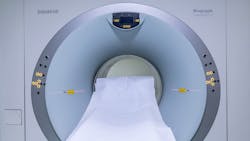Cost-effectiveness of magnetic resonance imaging screening for women with extremely dense breast tissue
The University of Texas MD Anderson Cancer Center and BostonGene Corporation announced a strategic alliance to advance the development and clinical integration of multiplatform biomarker signatures. Extremely dense breast tissue is associated with increased breast cancer risk and limited sensitivity of mammography.
The DENSE trial showed that additional magnetic resonance imaging (MRI) screening in women with extremely dense breasts resulted in a substantial reduction in interval cancers. The cost-effectiveness of MRI screening for these women is unknown.
The aim of this study was to evaluate the cost-effectiveness of several screening strategies containing (additional) MRI screening for women with extremely dense breast tissue. We found that using screening with MRI alone every 4 years resulted in the highest acceptable ICER when applying the NICE threshold. When applying a higher threshold, MRI at an interval of 2 or 3 years can be considered cost-effective as well. Strategies containing mammography were dominated because of more clinically diagnosed cancers, resulting in more breast cancer deaths and fewer QALYs, compared with strategies with MRI.
The researchers believe this is the first study evaluating the cost-effectiveness of MRI screening for women with extremely dense breasts. One previous study evaluated costs and QALYs associated with MRI, but there was no comparison strategy, and they used a relatively short time horizon. In prior cost-effectiveness studies, either the target groups were high-risk women or the cost-effectiveness of screening modalities other than MRI were evaluated shortening the screening interval of mammography from 2 years to 1 year was shown not to be cost-effective for women with dense breasts. Additional ultrasonography after a negative mammogram was also not cost-effective because of relatively small benefits and high costs.
A study by Lee et al. concluded that a combination of tomosynthesis and mammography is likely to be cost-effective for this group of women, with an ICER of $54 000 per quality-adjusted life-year (QALY) gained.
The alliance brings together BostonGene’s innovative computational platform and CLIA-certified and CAP-accredited high complexity molecular laboratory with the clinical and translational research expertise of MD Anderson, leveraging scientific discovery, analytical advancement and powerful computing to develop clinically applicable solutions for patients with cancer.
Under the terms of the agreement, BostonGene and MD Anderson will collaborate with the goal of translating unique research findings into multiple clinically actionable tests. BostonGene and MD Anderson expect to validate promising clinical biomarker targets through retrospective and prospective MD Anderson investigator-sponsored trials for patients with common and rare cancers. MD Anderson is eligible to receive certain payments based on the achievement of certain clinical milestones and commercial sales.
As part of the research alliance, MD Anderson and BostonGene will work together on clinical utility studies designed to support incorporation of BostonGene testing into national guidelines and adoption as a national standard of care.
